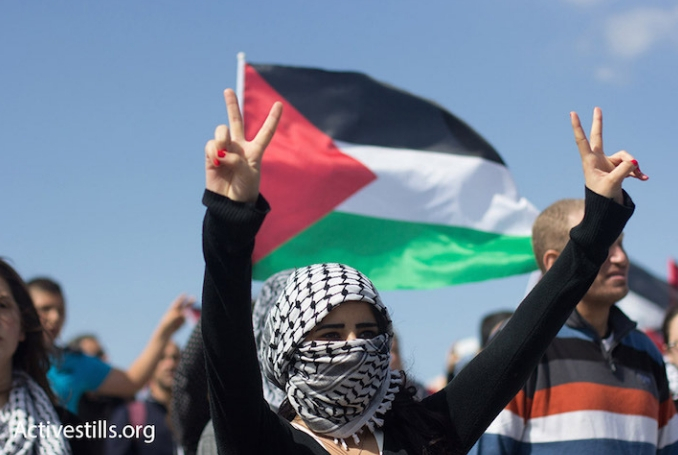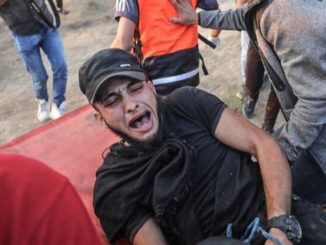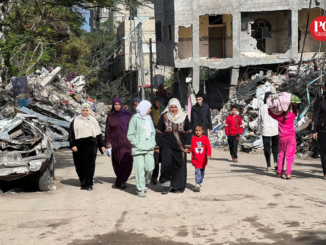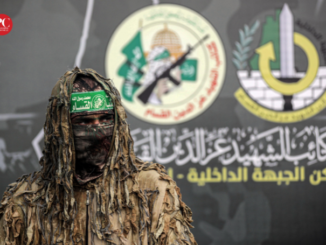
By Ramzy Baroud 
In an interview with the Israeli newspaper, Haaretz, prominent Israeli historian Benny Morris predicted a grim future for his country.
“This place will deteriorate into a Middle Eastern state with an Arab majority,” he said referring to Israel and Palestine. “The violence between various populations inside the state will continue to increase … The Arabs will demand the return of the refugees. The Jews will remain as a small minority in a large Arab sea of Palestinians – a persecuted minority or a slaughtered minority, as it was when they lived in Arab countries.”
“In another 30 to 50 years, they will overcome us, one way or another,” he added.
It doesn’t matter whether Morris’ prediction was meant to manipulate existing fears among his countrymen, to hype the sense of victimization that continues to define the collective Israeli Jewish mindset or to communicate his honest feelings.
Either way, his statement explains why Israel acts against the Palestinian identity with such a great sense of urgency, intensifying attacks on Palestinian culture, speeding up annexation of Palestinian land, expanding Jewish settlements and Jewish-only roads, renaming streets and marginalizing the Arabic language.
For Israel, erasing Palestine and writing the Palestinian people out of the history of their homeland have always been a strategic endeavor.
“Considered as a major accomplishment of modern Jewish nationalism, the ‘Hebraicization of Israel’ usually refers to the revival of the Hebrew language undertaken by and associated with Zionism as a restorative project of nation-building,” Israeli academics Maoz Azaryahu and Arnon Golan wrote in their paper “(Re)naming the Landscape: the Formation of the Hebrew Map of Israel”.
“A lesser known aspect of the ‘Hebraicization of Israel’, however, has been the ‘Hebraicization of the map’, a state-promoted national project whose objective was “to Judaize (sic) the map of Israel and to affix Hebrew names to all geographical features in the map of Israel”.
This is as true in the case of Palestine, as it was in the case of all colonized nations. And like other settler-colonialist powers, Israel is well aware of the important rapport between places, names and collective identities of the indigenous, colonized people.
As Canadian historian Kaleigh Bradley pointed out in a recent essay: “For indigenous peoples, place names act as mnemonic devices, embodying histories, spiritual and environmental knowledge, and traditional teachings. Place names also serve as boundary markers between home and the world of outsiders.”
The Israeli Zionist campaign to rename Palestinian places, destroy Palestinian heritage sites, claim Palestinian culture, undermine the Arabic language and erase cultural contributions of the Palestinian people has continued for over 70 years now.
More recently, the Israeli army has used its violent military assaults on Palestinians not only to take Palestinian lives but also to destroy cultural monuments and places of worship of historical significance. According to official Palestinian reports, Israel destroyed 73 mosques in the 51-day war on the besieged Gaza Strip in 2014.
Some of these mosques, like al-Omari Mosque in Jabaliya, are ancient structures that date back more than a thousand years. Al-Omari Mosque was built nearly 1365 years ago and has served as a symbol of hope for Palestinians in Gaza, a reminder of past grandeur.
The Israeli authorities have also increased pressure on Islam’s third-holiest site: Al-Aqsa Mosque. It has facilitated the forceful incursions of the Temple Mount Faithful, an extremist Jewish group, into the Haram al-Sharif compound, where the mosque is located. The group has declared that it is keen on destroying al-Aqsa Mosque to build a “Third Temple on Temple Mount” – something the Israeli government also wishes for.
There have been various attacks on Palestinian cultural heritage in Nablus, al-Khalil (Hebron), Ariyha (Jericho), Yaffa (Jaffa), Haifa and many other Palestinian towns and villages.
Despite all of this destruction, on intellectual and political levels, Israel remains insecure about its past and uncertain of its future.
But the foretold demise of Israel as a “Jewish state” – as prophesied by Morris – will come not as a result of the Arab majority “slaughtering” the “persecuted minority”, but as a result of Israel’s reckless actions. Before the Zionists, there were many other invaders. Many fled, but many others chose to stay and were naturally integrated into the fabric of the diverse Palestinian society.
Israel refuses to accept the fact that the Palestinians’ relationship with their land cannot be dictated or terminated by violence, Knesset bills or army decrees. To the contrary, the more aggression is unleashed onto the Palestinians, the stronger the Palestinian sense of nationhood grows. The late Palestinian poet Mahmoud Darwish in his seminal poem, “ID Card” was able to capture this Palestinian spirit of resistance brilliantly:
I am a name with no honorific.
Patient in a land
Where everything lives in bursting rage
My roots were planted before time was born
Before history began
Before the cypress and the olive trees
Before grass sprouted
Palestinian “sumud” (steadfastness) has turned out to be far superior and more powerful than any of Israel’s military and political stratagems. And it is this steadfastness that will guarantee that Morris’ prediction comes true. The great Palestinian sea will swallow the occupier.
– Ramzy Baroud is a journalist, author and editor of Palestine Chronicle. His forthcoming book is ‘The Last Earth: A Palestinian Story’ (Pluto Press, London). Baroud has a Ph.D. in Palestine Studies from the University of Exeter (2015) and was a Non-Resident Scholar at Orfalea Center for Global and International Studies, University of California Santa Barbara. His website is www.ramzybaroud.net.

– Ramzy Baroud is a journalist and the Editor of The Palestine Chronicle. He is the author of six books. His latest book, co-edited with Ilan Pappé, is “Our Vision for Liberation: Engaged Palestinian Leaders and Intellectuals Speak out”. Dr. Baroud is a Non-resident Senior Research Fellow at the Center for Islam and Global Affairs (CIGA). His website is www.ramzybaroud.net







